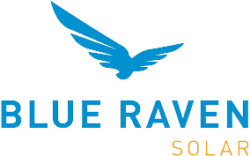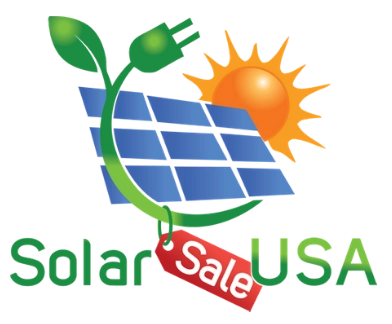Benefits of Solar Energy
Solar energy has several advantages that will enhance your home for years to come.
- Reduced carbon footprint: Using clean solar power means you're less dependent on fossil fuels, which emit harmful greenhouse gasses.
- Better energy independence: Solar panel systems with energy storage systems function through power outages and emergencies, and you won't have to rely on the electrical grid for your safety and comfort.
- Lowered energy bills: With solar panels, you generate power without paying the tacked-on costs of grid-tied power. You can eliminate your bills completely if you go off-grid. Plus, a significant number of states offer net metering, which permit you to earn money by selling your unused energy back to the grid.
What Solar Incentives Are Available to South Fulton Homeowners?
Georgia agencies and electric companies offer a number of solar incentives to help minimize your solar system costs. Check out a breakdown of eligible solar programs where you live.
Incentive Type: Sales Tax Incentive
Incentive Amount:
100% exemption
Incentive Type: Rebate Program
Website: georgiapower.comIncentive Amount:
Single Family
Central AC Replacement: $50
Air/Duct Sealing: $300
Attic Insulation: $250
Heat Recovery Water Heater with Heat Pump: $250
Heat Pump Water Heater: $250
Solar Water Heater: $250
Home Energy Assessment: $150
Smart Thermostat: $75
Heat Pump conversion: $250
Multifamily
Central AC Replacement: $25
Air/Duct Sealing: $150
Attic Insulation: $125
Heat Recovery Water Heater with Heat Pump: $250
Heat Pump Water Heater: $250
Solar Water Heater: $250
Home Energy Assessment: $75
Smart Thermostat: $38
Heat Pump conversion: $125
Incentive Type: Loan Program
Website: cgemc.comIncentive Type: Rebate Program
Website: utility.orgIncentive Amount:
New Homes
Programmable Thermostat: $50
Electric Vehicle Charging Station: $100
Heat Pump/Air Conditioner: $100
Heat Pump Water Heater: $250
Solar Water Heater: $250
Incentive Type: Rebate Program
Website: utility.orgIncentive Amount:
Programmable Thermostat: $50/unit
Electric Vehicle Charging Station: $100/unit
Heat Pump/Air Conditioner Replacement: $100/unit
Heat Pump Water Heater/Solar Water Heater: $250
Incentive Type: Personal Tax Credit
Website: ecowatch.comIncentive Amount:
30% federal tax credit for systems placed in service after 12/31/2021 and before 01/01/2033. Good for: solar water heat, solar photovoltaics, biomass, geothermal heat pumps, wind (small), fuel cells using renewable fuels.
How To Choose the Best Solar Company in South Fulton
The more comprehensive your provider search is, the better your solar panels will ultimately function. Consider all of these factors in your company search.
Licensing and Training
Georgia doesn't have solar-specific contractors' licenses, but the law does require solar installers to be licensed electrical contractors. The Georgia Secretary of State manages licenses and business filings. You should also visit a company's website to learn about its private accreditations. Two of the most recognized are the Solar Heating Installer and PV Installation Professional certificates, granted by the North American Board of Certified Energy Practitioners (NABCEP). Some companies don't publish this information online, so you should also ask your estimator about them.
Cost of Solar Panels in South Fulton
The type of solar panels you select determines how much energy you can produce. Monocrystalline panels and high-quality and cost more but give you the best performance. Polycrystalline panels work with a tried-and-true mechanism and cost less, but produce less power. Thin-film panels aren't the best for large residential installations, but they are excellent accessories for non-traditional roofs.
You can also add electric vehicle (EV) chargers and battery backup systems. These will increase your total installation cost, but they can improve your solar system's performance. Not every solar provider offers these add-ons, so look for a company that sells them if it's crucial for you.
Generally speaking, it costs about $18,700 for a five-kilowatt solar array in South Fulton. This table shows more specific prices for different solar panel types and system components in your area.
| Solar Panel Cost | Average Cost |
|---|---|
| Solar Monocrystalline | $1,288 |
| Solar Polycrystalline | $1,005 |
| Thin-Film | $587 |
| Solar Battery | $824 |
| Solar Home EV Charger | $3,091 |
Financing Solar Energy in South Fulton
Solar providers use multiple different financing options to increase your savings and lower your costs. Though some providers offer unique payment plans, the most common are solar leases, solar loans, cash payments and power purchase agreements (PPAs). Though it requires a large up-front payment, cash is the most cost-effective choice because it qualifies you for solar incentives and doesn't accrue interest. Solar loans are the next best option. As with a car or home loan, you'll pay a monthly rate towards system ownership, including interest. You can still apply for cost-saving solar incentives, and depending on your lender, you could put as little as $0 down. Solar leases allow you to pay a monthly rate to rent your panels, while a power purchase agreement lets you pay a variable rate based on only the energy you use. We generally don't recommend these options since you will not have ownership of your system and are disqualified from solar incentives, but they might be appropriate in specific circumstances. Look for installers that offer two or more payment plans to find the right fit for your pocket.
The table below lists the average payback periods for different capacities of solar systems in South Fulton.
You are eligible for a 26% federal solar tax credit for new solar energy equipment until the year 2032. Municipal and state governments and utility companies might also offer rebates, discounts, and unique financing solutions that could save you more.
| Solar System Capacity | Estimated Payback period |
|---|---|
| 1 kW | 1.8 years |
| 2 kW | 3.5 years |
| 5 kW | 8.8 years |
| 10 kW | 17.7 years |
Ready to Get a Quote on Your Solar Project?
Please enter a valid 5-digit zip code!
Frequently Asked Questions About Solar in South Fulton
How much energy and money could I save per year by switching to solar?
Is solar energy common in South Fulton?
Should I expect a boost in my property value after installing solar panels?
What's a South Fulton solar panel's average lifespan?
What's the average solar system size in South Fulton?
What is the average payback period for South Fulton solar panels?
What is "net metering," and how does it work?
What's the difference between a PPA and a solar lease?
If you choose a lease, you'll make fixed payments each month.
With both leases and PPAs, you do not own your panels and lose eligibility for some incentives. Further, you'll have to "buy out" or transfer the contract if you sell your home during the term.
To share feedback or ask a question about this article, send a note to our Reviews Team at reviewsteam@thisoldhousereviews.com.



















